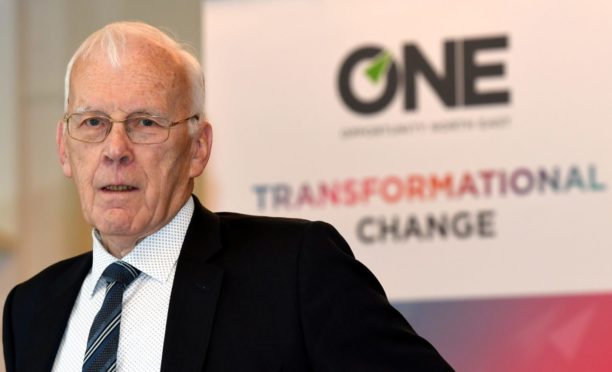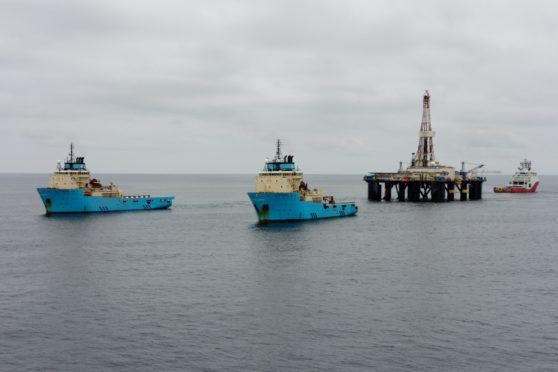Sir Ian Wood has revealed that he thinks Aberdeen has been “left behind” in moving away from oil and gas.
The Aberdeen businessman also welcomed the £27m funding boost coming from the UK Government in tomorrow’s budget, which will go towards creating an energy transition zone in the city.
Speaking on Good Morning Scotland, Sir Ian insisted that businesses across the region are well-placed to transition to greener energy but that the move should have happened sooner.
He said: “We only really started moving a year ago but we should have started three or four years before that.
“The problem was that we were so busy with oil and gas as this is a region dominated by oil and gas and therefore there wasn’t the capacity at the time to convert.
“Make no mistake, oil and gas is here for a long time but every effort is going to be made to get net-zero, i.e. no carbon balance by 2050 and this will be achieved by the natural wind down of oil and gas, there’s a major programme oil and gas have right now to reduce emissions.
“It’ll also be achieved by carbon capture storage, by using some of the gas for hydrogen, there’s a whole range of activities.
“The UK and Scottish governments are very active just now, as is our industry in carrying out different ways to do this.”
Sir Ian is chairman of Opportunity North East (ONE) which is helping the region adapt to new economic trends.
The UK Government announced that the region will receive £27m in funding to support the development of green energy as part of Rishi Sunak’s budget plans.
An additional £5m is expected for the Global Underwater Hub in Aberdeen.
Sir Ian added: “The north-east is rapidly changing from being a major oil and gas capital to being very much involved in the new energies, off-shore wind, hydrogen and carbon capture.
“Aberdeen is extremely well-positioned for this, A because we’ve got 50 years of oil and gas experience and skills that can be applied to the new energy activities.
“And secondly because in terms of timing, oil and gas are beginning to wind down and we are going to have a very difficult employment transition which will be greatly eased by the energy transition zone activities that will take over some of the employment.”



